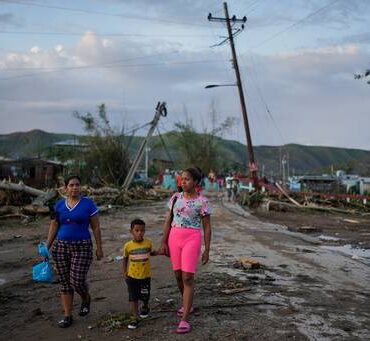On what karamdaman and pakikiramdam feel like

We have a very peculiar sense when something is wrong. We say, “May nararamdaman ako” or “May karamdaman ako.” If we translate that in English, it is just, “I feel something.”
Without any context, that is a very vague statement. What do you “feel”? What is that “something”? And yet, we get it immediately because in our culture, this statement indicates something much deeper—that we are sensing some kind of physical danger, mental distress, or spiritual threat. We know that there is something wrong, but we are not yet sure what.
Sensitive to the world we live in
Outsiders to Filipino culture might look at this and say, “Filipino psychology is so pessimistic. So negative. Filipinos are too sensitive to things that could go wrong. This explains why they have so many primitive superstitions.”
But this interpretation is very incomplete, and it does not really try to understand. We are not just “sensitive” to what might go wrong. We are just used to things being harmonious, aligned, and functional.
Sickness—sakit—is any pain and discomfort in the world we live in, which could be bodily, social, or supernatural.
Physical ailments are called “sakit” but so are heartaches. “May sakit sa puso” or “Masakit ang puso” could mean a cardiovascular issue or a romantic issue, depending on context. “Masikip ang dibdib” could mean a problem in your lungs, or a burden in your soul.
All part of a bigger ecosystem
We are sensitive to the world we live in… because we have to live in it! And so, we must take care that we are not hurting others or doing things that might hurt us later on. This is the principle of pakikiramdam, of using our empathy as a guide through the world.
Our sensitivity to something wrong in our world is the expression of the old saying, “Ang sakit ng kalingkingan ay ramdam ng buong katawan.” Any minor pain, even if it is just a paper cut on the pinky finger, is felt by the entire body.
As individuals, we often feel so small and so detached from the larger world. But our difficulties, sorrows, and burdens are all part of a larger ecosystem of people who care about us, of places that miss us in our absence, and of memories of loved ones who survive through our stories about them.
When a sick person goes to an albularyo, the first thing the healer would probably try to identify is what that person did to cause this sickness. That does not always mean that the albularyo is blaming the sick person for getting sick; they are just trying to check whether the patient was careless about something. Maybe they offended the wrong person, or even a spirit.
Our folk traditions surrounding healing are usually based on seeking forgiveness through food offerings or petitions—in other words, “bawi.”
It all starts with listening to our body
Even in modern medicine, there is an understanding that your physical health also has a lot to do with the mindset you have as well as your social and physical environments.
Do you live in a supportive household? Does your work let you get enough rest? Do the people in your life encourage damaging or healthy habits? Is your neighborhood safe? All of these factors affect a person’s well-being. The academic term for this is “biopsychosocial” because it looks at the biological (genetics, exercise, diet, sleep, etc.), psychological (hopefulness or hopelessness, positive or negative thinking, motivation, etc.), and social (positive support, family systems, workplace stress).
Human bodies are not just cars being driven by a ghost. We are organisms, not machines. We are not just products in some kind of cosmic factory; we grew out of the earth itself, in the same way that trees and birds did.
So, if we want to feel more connected to the world, we can listen more closely to our karamdaman.

















